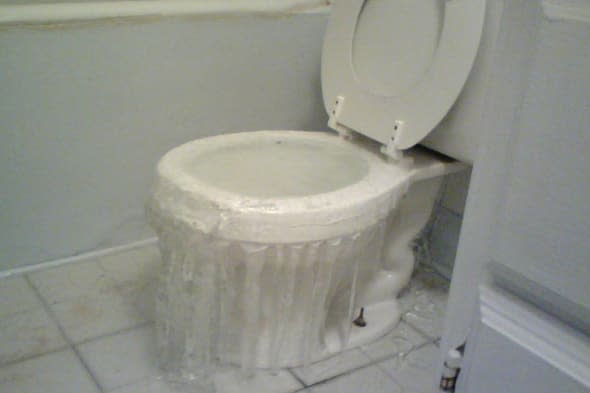Can't Afford a Home Repair? 3 Ways to Get Financial Help

By Geoff Williams
If you had to have your furnace or pipes fixed after that recent cold snap, you aren't alone. According to a study last year by the Joint Center for Housing Studies at Harvard University, approximately $300 billion is spent on home remodeling and maintenance every year in the United States. That number should be even higher, though. Plenty of repairs go unfixed every year.
According to another 2013 study, this one from the National Center for Healthy Housing, 35 million metropolitan homes in the United States, or 40 percent, contain one or more health and safety hazards. The most common repairs that aren't fixed? Water leaks from outside, which affect 11 percent of metro-area homes, followed by openings in homes that mice are able to exploit (10 percent) and interior water leaks (9 percent). Meanwhile, 5 percent of homes throughout cities and suburbs have unrepaired roofing problems, damaged interior walls and foundation problems.
So what happens when you have a home issue that needs attention but lack the funds to repair it? You can do nothing, of course, and live with your problem. But there may be more options available than you think.
Apply for a loan. You may scoff at first, especially if your credit is shaky or you've already been turned down for a loan by your bank, but there are nonprofits out there that are designed to help low-income and middle-class homeowners, says Douglas Robinson, a spokesperson for NeighborWorks, a nonprofit created by Congress that supports community development in the United States. "There aren't billions of dollars out there, but there are millions of dollars out there," Robinson says.
These loans generally fund unglamorous but crucial infrastructure repairs to your home. In other words, you'll have much more luck finding money to repair your roof, replace your furnace or improve your ventilation than finding funding for a new oven or refrigerator. NeighborWorks itself doesn't dole out loans, but you can find loans in its network of housing organizations, like Homewise Inc. in Santa Fe, N.M., Neighborhood Housing Services of Greater Cleveland and 233 other independent nonprofits serving 4,500 communities throughout the United States.
On NeighborWorks' website, www.nw.org, you can go to the right side of the screen and click on "Find a NeighborWorks Organization," which will bring you to a page where you can type in your state or ZIP Code and search for nonprofits that may have loans available. Robinson also suggests tracking down your local community development financial institution and seeking its advice and possibly financial assistance. "They're all around the country, and not everyone will qualify, but if we're talking about something that isn't dire and you have time to do your homework, it's probably a good way to go," Robinson says.
You can find community development financial institutions at ofn.org/cdfi-locator. If your income is at poverty level (generally, a family of four living off $23,050 or less is considered to be living on or below the poverty line), there is another organization worth knowing about: Rebuilding Together (rebuildingtogether.org), which specializes in repairing the homes of low-income people. (Finding a local Rebuilding Together chapter through the website can be challenging; you're probably better off running a search for "Rebuilding Together" and your location.)
Refinance. Specifically, with a Federal Housing Administration 203(k) refinance loan. These are loans in which the homeowner consolidates their existing mortgage and the cost of a home renovation project. As long as the repairs are considered necessary (like a new floor) and not frivolous (like a new deck) and they will add value to your home, you may have a good shot at getting the loan. Your local mortgage lender can help you apply.
More from U.S. News:
8 Energy-Efficient Home Improvements That Save Money
14 Ways to Slash Your Expenses in 2014
10 Saving Strategies That Can Backfire
More from AOL Real Estate:
Find out how to calculate mortgage payments.
Find homes for sale in your area.
Find foreclosures in your area.
Find homes for rent.
Follow us on Twitter at @AOLRealEstate or connect with AOL Real Estate on Facebook.

